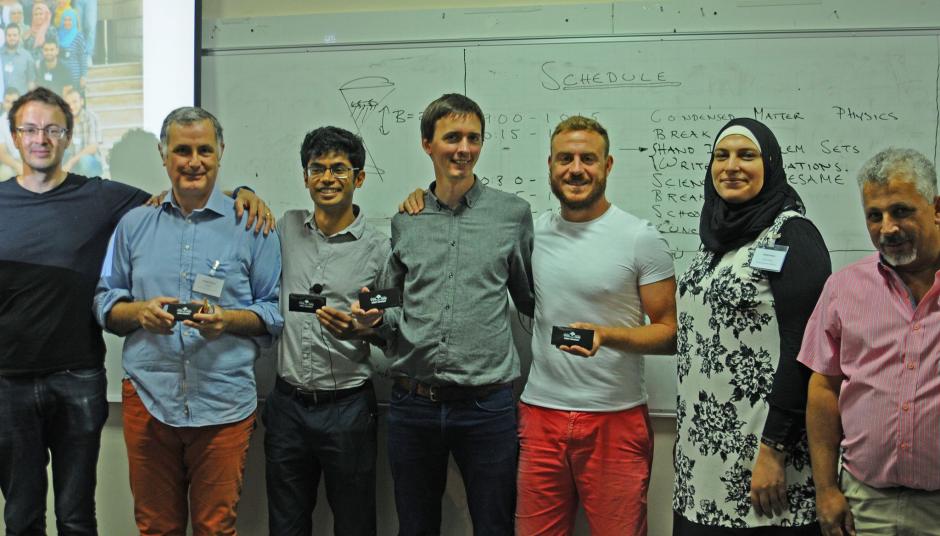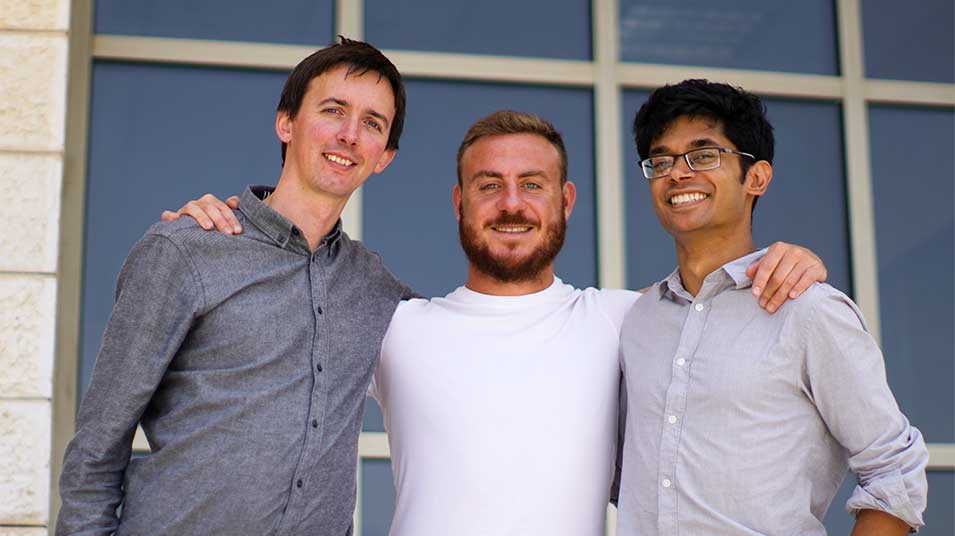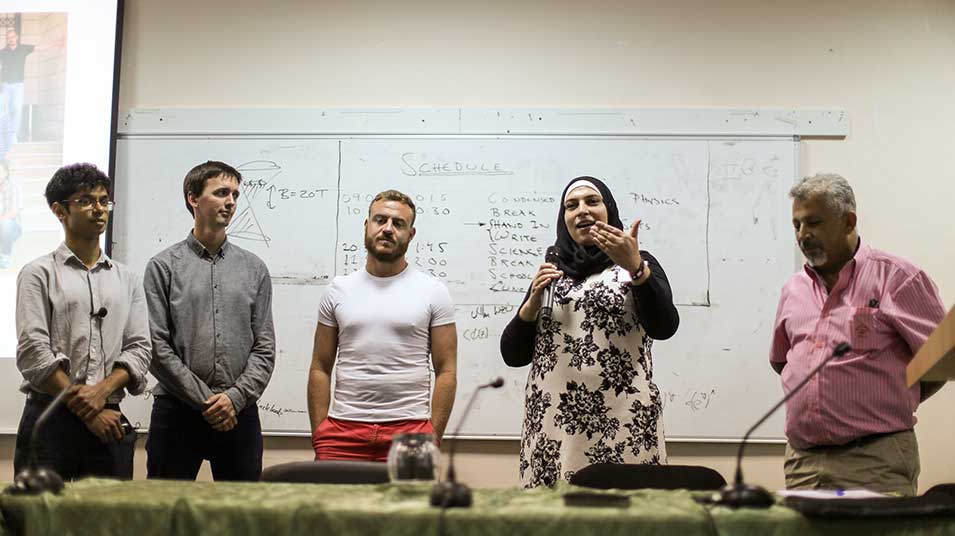Birzeit University hosts "Palestinian Advanced Physics School"
From July 9 to 13, 2017, Palestinian physicists and the international group “Scientists for Palestine” gathered at Birzeit University for the “Palestinian Advanced Physics School (PAPS) 2017”, replicating the incredible success of PAPS 2016 held at the University of Jenin in July 2016 (see here, here and here).
Over 50 Palestinian master students in physics from several Palestinian universities (Al Quds University, Birzeit University, An Najah University, and the Arab American University in Jenin (AAUJ)) attended a five-day intensive school on Cosmology, Solid State Physics and about the physics of SESAME, a large laboratory established in Jordan with the help of Middle Eastern countries including Palestine. The number of students nearly doubles the number of participants of PAPS 2016.
The school had 3 internationally recognized lecturers including Ann Nelson, professor of theoretical particle physics at the University of Washington in the United States; David Tong, professor of theoretical physics at the University of Cambridge; and Giorgio Paolucci, Scientific Director of SESAME; professor Hans Stroeher of Jülich University, Germany, will deliver two special lectures on the foundation of the physical laws of our Universe.
The school is organized by physicists from the universities of Birzeit, Cambridge, CERN, Cincinnati, Durham, Hamburg, and the International Center for Theoretical Physics (ICTP) in Triste and Southampton.
According to the organizers, Physics has a strong tradition in Palestine. PAPS, along with for example, the bi-annual "Palestinian Conference on Modern Trends in Mathematics and Physics", organized by Palestinian academics since 2008, are two of the many scientific events organized in Palestine. However, physics higher education and research in Palestine faces many challenges, including some common to many countries, such as lack of funding and heavy teaching loads for professors, as well as unique challenges from the ongoing occupation of the West Bank and Gaza, including restrictions on mobility of students and academics, international isolation, raids and forced closures of Palestinian universities and other scientific institutions, and indictment or imprisonment without trial of individual academics. In fact for the second year multiple students from Gaza, who had applied and been accepted to the school, have been denied permit from Israel to participate to the school.
Nevertheless, interest in physics education and research in Palestine continues to grow rapidly not only within Palestine but also throughout the international scientific community. In December 2015, Palestine signed an International Cooperation Agreement with CERN, signaling Palestine's increasing involvement in cutting-edge scientific research at one of the best laboratories in the world.
Professor David Tong described the experience as lovely. “The students from Birzeit University and other universities are willing to absorb the learning materials, and engage in problem solving sessions and discussion. We had great interactions with all the students.”
Tong believes that there is a great potential for developing physics in Palestine, pointing out to the skills and talents that the students in the master’s level have. These students, according to Tong, needs an opportunity to develop their skills and move to a higher level to be able to do high-quality researches, and contribute in developing science and physics in Palestine.
Wafaa Khater, Birzeit University Physics Department chair stressed how the school could help students to be successful in academia: “Being one of a few female faculty members in physics in Palestine, I am so happy to see such large number of excellent female students participating in the Palestinian Advanced Physics School. I am hopeful that they will be able to pursue a career in physics in either academia or research. This school is an excellent opportunity for all participating students to meet scientists from the international community and learn from them. This opens up new windows for our students to continue their higher education in prestigious universities and research centers around the globe.”
The organization of the school has benefited tremendously from nearly two hundred donation from around the world, funding from ICTP, and the contribution of a Palestinian based Organizing committee.









